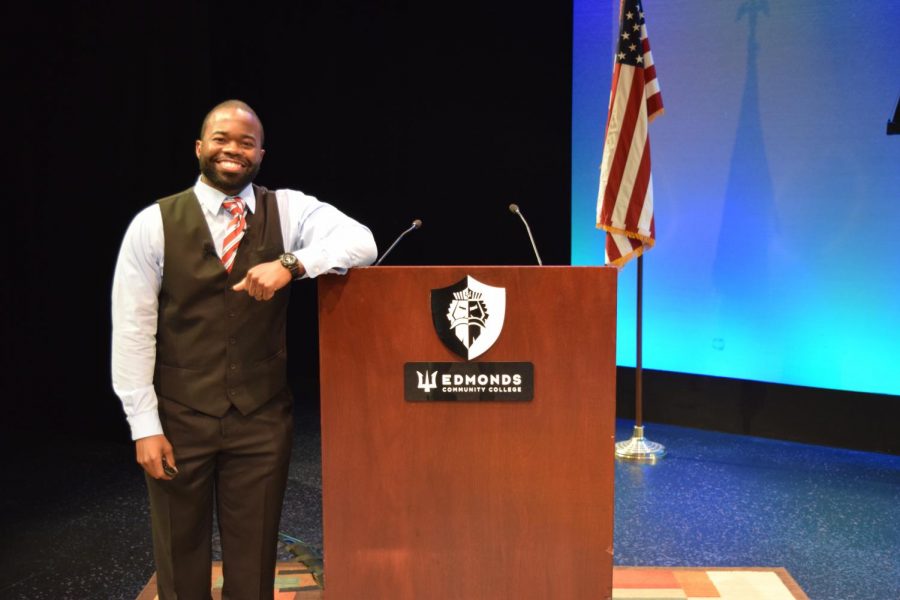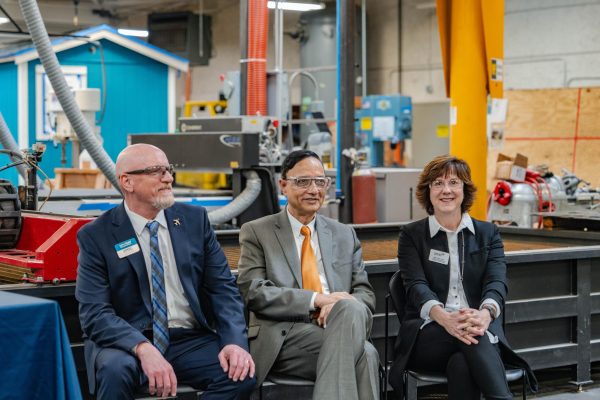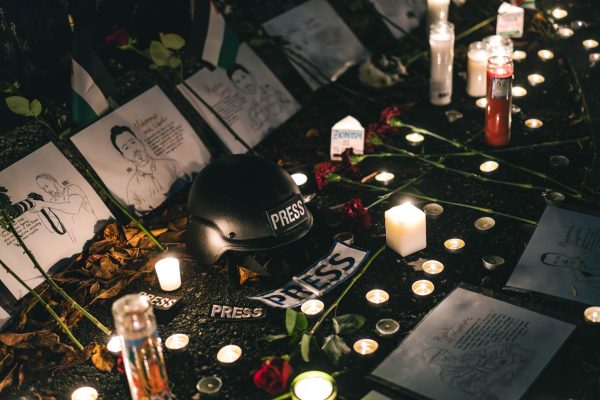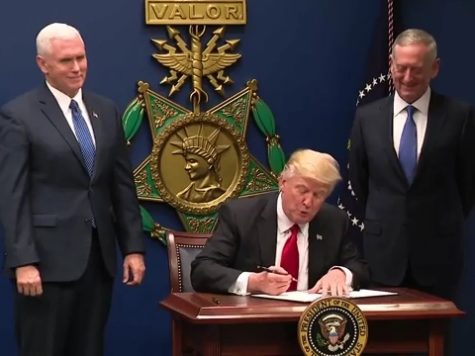Mental Health on Campus: A Series by Student Gov. – Odell Bizzell
“You were made to impact.”
Odell A. Bizzell II, keynote speaker, author, and hip-hop artist, opened his presentation with these words at the Edmonds Community College Black Box Theatre on May 6th.
“Mediocrity is an enemy to your destiny,” Bizzell raps, opening his speech with a combination of rap and spoken-word poetry.
Bizzell is from North Carolina and grew up with a dream. “I had this really really big dream… But it wasn’t deep. I wanted to go to the NBA,”
Upon telling his father this dream, Bizzell was told “Son, you have a better chance of getting struck by lightning twice.”
But Bizzell persisted. “I felt like I could do anything,” he said in his speech.
“I wanted to do good in school, I did good in school. I wanted to do good in sports, I did good in sports… I went through a major depression. I did everything right.”
Bizzell was sponsored to come talk at EdCC as a part of a series “Overcoming Obstacles.” This series included the talk by Bizzell, as well as one with Jasmine Banks and Andy Parks. The event page stated that “Overcoming Obstacles is a Lecture Series intended to encourage, motivate, and uplift the student body. Real life people who have overcome real life obstacles delivering a message of hope and encouragement.”
Seemingly unrelated to the series, Joshua Rivedal will be coming to talk at the college on May 14th to lead a program specifically focused on “highlight[ing] suicide prevention and raising mental health awareness.”
“In this conversation, we’re talking about overcoming the obstacles that get you down,” said Bizzell. “Life does not get easier.”
Bizzell likes to think about life as a sport. “Life is a sport… We have to compete,” he said. “Life wants to see what you’re made of.”
But he also believes that failure is just as important. “When you think of failure you automatically think of what was [sic] success supposed to look like,” said Bizzell. “We have to use failure as a teacher.”
“Life doesn’t get easier[…] But here’s what happens: we get stronger.”
But strength doesn’t just mean muscles. “We have to look at our mental health like we do our physical health,” said Bizzell. We have to take care in what we allow ourselves to put into our minds just as much so as we care about what we put in our bodies.
“When we listen to music we’re feeding our minds. We scroll through our timelines, we’re feeding our minds.” So we need to make sure to put good things in our minds, after all, the seemingly mindless things we put in there has a greater impact than we think it does. However, it isn’t just media that impacts our subconscious and how we think about the world. Bizzell discussed how if you have four friends who complain a lot, you will likely be the fifth. If you have four friends who are always getting each other down, you are probably the fifth. “Our friends are like elevators[…]They either take you up or they take you down.”
But how much does our subconscious matter really?
“Ninety-five percent of what we do on a daily basis is controlled by our subconscious,” so we have to be careful about what ends up in there. “It’s only five percent that’s conscious[…] We have to program that five percent if we wanna win.”
But what about the people for whom that’s more difficult than normal?
“Every single day, we have to make sure we over-run the negativity in the world with positivity[…] Here’s what negativity does, it distracts you from your destiny. Positive energy pushes you toward it.” But you can’t just be trying to go towards something without a clear destination. “You have to have a clear destination of where you’re going”
Bizzell sets out clear, “smart” steps for setting good goals. He describes making a goal something that is specific, measurable, attainable, relevant, and time bound.
And how to achieve these goals? “I you’re going through a tough time now, you have to have the discipline to get you to the next level,” said Bizzell. “Discipline is the ability to give up what you want now for what you want most[…] Success is practicing small disciplines every day.”
Bizzell closes by giving advice on what to do to make it in life. “Where you’re going is based off who you connect to,” he says. “It’s so important to connect to people, it’s so important to [have] experiences, it’s so important to [do] things that will uplift you.”
“You wanna be proud of yourself,” he says.“Passion makes your purpose functional.”











